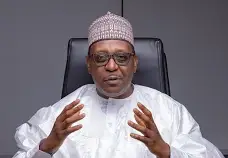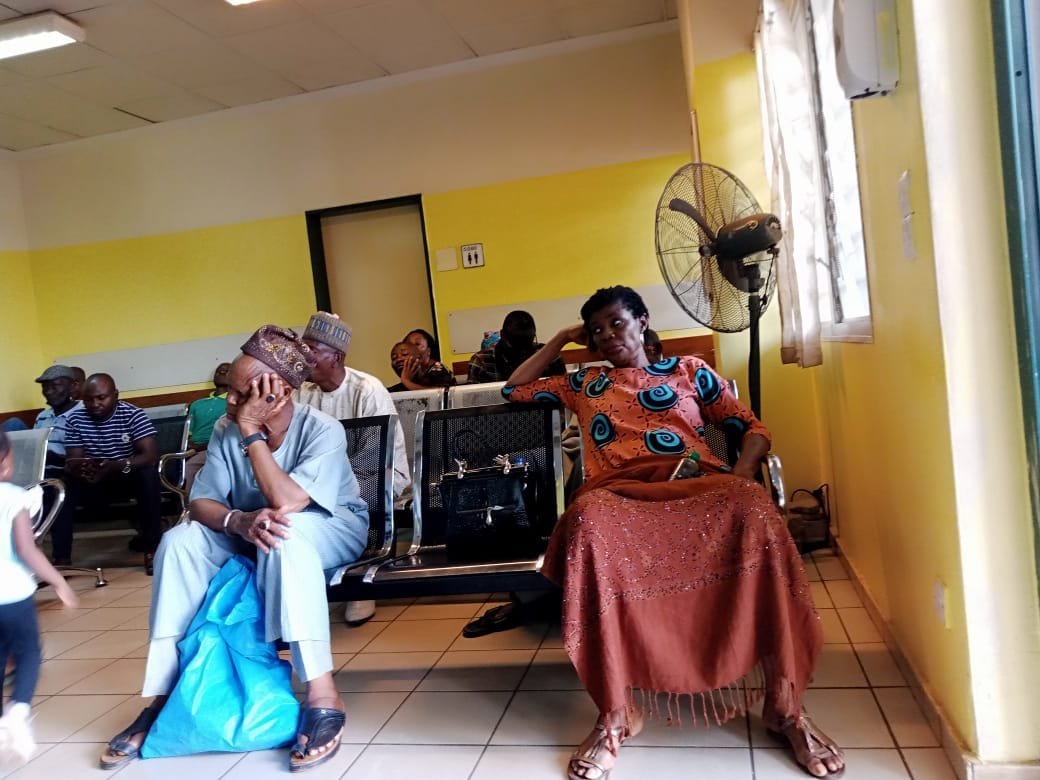In this special report, Hussaini Kafi in Kano highlights the real reasons why Nigeria’s Health Insurance system continuous receiving public knocks and lose of trust, while assessing the challenges and prospects awaiting the body.


When 48-year-old Adamu Garba from Kano State suffered a stroke in late 2023, his family had to sell their only motorcycle and borrow from neighbours to cover the hospital bills.
With no health insurance, the cost of care quickly spiralled beyond what they could afford. “We spent over ₦450,000 in just two weeks,” says his wife, Hadiza. “We never imagined that one illness could wipe out our savings and leave us in debt.”
Adamu’s story is all too common in Nigeria, where millions face catastrophic health expenditures due to the absence of functional health insurance coverage.
Despite the existence of the National Health Insurance Scheme (NHIS), launched with high hopes in 2005, access remains limited, particularly for the rural poor and informal sector workers who make up the majority of the population.
This report investigates the systemic weaknesses of Nigeria’s health insurance system, examining its accessibility, affordability, and quality, while also exploring innovative approaches and reforms that could drive meaningful change.
A System Designed for Few, Not for All


At the heart of Nigeria’s health insurance landscape is the NHIS, a federal initiative intended to offer universal health coverage. Yet, nearly two decades later, only about 5 to 10 percent of Nigerians are covered—mainly those in the formal public and private sectors. The vast informal economy remains largely excluded.
In an interview, Dr. Halima Yusuf, a public health expert and consultant with decades of experience in healthcare financing, emphasized that the structure of NHIS was flawed from the start.
“Health insurance in Nigeria has not evolved to meet the realities on the ground,” Dr. Yusuf explained. “The model is still very formal-sector focused. We are missing out on the larger population, especially those in rural areas, market women, artisans, and self-employed individuals. Without a deliberate attempt to include them, we can’t achieve universal health coverage.”
Political Will and Financial Innovation: What’s Missing?
Globally, health insurance systems thrive on political commitment and sustainable financing. In Germany, Japan, and the UK, health insurance is either mandatory or funded through a combination of taxes and employer-employee contributions. In Ghana, a portion of Value Added Tax (VAT) is dedicated to its national health insurance scheme.
In Nigeria, such financial ingenuity has yet to materialize. Experts say the government lacks the political will to institutionalize health insurance through legislation and effective policy implementation. Dr. Yusuf stressed this point: “We need a robust political drive. The health insurance law must not only exist on paper but be enforced. One practical idea would be to allocate a small percentage—say 1%—from telecom charges, DSTV subscriptions, and bank transfers to fund health insurance. It’s not rocket science. Other countries are doing it. The problem here is leadership and political accountability.”

The Vanishing Middle Class and Economic Realities
The weakening of Nigeria’s middle class also contributes to the health insurance crisis. With rising inflation, high unemployment, and dwindling purchasing power, many middle-income Nigerians now struggle to meet basic needs, let alone pay insurance premiums.
Mr. Ikenna Okoro, a tailor in Aba, once subscribed to a private health insurance plan but could no longer afford the monthly ₦5,000 premium after COVID-19 disrupted his business.
“Health insurance is good, but you can only pay when you are sure of tomorrow,” he said. “Most of us are just surviving day by day. Government hospitals are not reliable, and private ones are too expensive. We are stuck.”
This economic fragility is compounded by the absence of a social security system that could subsidize health insurance for low-income earners. In most parts of Europe, the state provides basic health protection to all residents regardless of income. Nigeria has no such system in place.
Cultural Resistance and Weak Public Sensitization
Another major hurdle is the public perception of health insurance. Many Nigerians are still unfamiliar with the concept or see it as a waste of money if they don’t fall ill.
“People here believe you should only pay for healthcare when you are sick,” says Aminu Bello, a community health worker in Katsina. “There is little awareness about preventive care and risk pooling. Education and sensitization are key, but we are not doing enough in that area.”

Indeed, lack of public awareness and trust in the system remains a stumbling block. Numerous NHIS enrollees have reported substandard service and medication shortages in accredited facilities. Some even claim they were charged for services supposedly covered by the scheme.
Technological Solutions: The Role of Biometric Integration
For any health insurance system to function optimally, accurate data is essential. Yet, Nigeria lacks a comprehensive digital registry of citizens, which leads to issues of ghost enrollees, fraud, and service duplication.
Dr. Yusuf suggests that technology could be a game-changer if deployed strategically.

“A reliable biometric database would make a significant difference,” she said. “We already have NIN and BVN systems. Why not integrate these into NHIS records? It would help track enrollees, verify identity, and ensure only eligible individuals access care. Technology can also help monitor service quality and prevent corruption.”
Comparing with Global Models: What Can Nigeria Learn?
In Rwanda, for instance, the community-based health insurance model (Mutuelles de Santé) has achieved remarkable success by incorporating grassroots participation and flexible premium options. Contributions are tiered based on income levels, and the government subsidizes the poorest households.

Ghana’s NHIS, despite its own challenges, continues to show better enrolment numbers than Nigeria’s. Part of its success lies in its dedicated funding stream from VAT, widespread mobile-based registration systems, and extensive rural outreach.
Reform Recommendations and the Way Forward
To build a functional, inclusive, and sustainable health insurance system, Nigeria must embrace a series of reforms:
- Enforce Universal Health Insurance: Make health insurance mandatory across all employment sectors, including the informal economy.
- Establish New Funding Channels: Introduce micro-levies on high-volume transactions—such as telecoms and digital banking—to create a robust health fund.
- Revamp the NHIS Model: Transition from a centralized model to community-based schemes that reflect local needs and economic capacities.
- Improve Public Awareness: Launch sustained public education campaigns using mass media, religious institutions, and community influencers.
- Invest in Technology and Data: Integrate NIN, BVN, and health records to streamline administration and reduce fraud.
- Strengthen Governance: Appoint credible leadership to drive health insurance reforms and ensure transparency, accountability, and quality service delivery.
Conclusion: A Race Against Time
With high maternal mortality, a growing disease burden, and millions living below the poverty line, Nigeria cannot afford to treat health insurance as an afterthought. The time for reform is now. Health insurance must become a tool for poverty alleviation, not a source of frustration or exclusion.
As Dr. Yusuf concluded:
“If we get health insurance right, we will reduce poverty, improve productivity, and save lives. It’s not just a health issue—it’s a development priority.”



